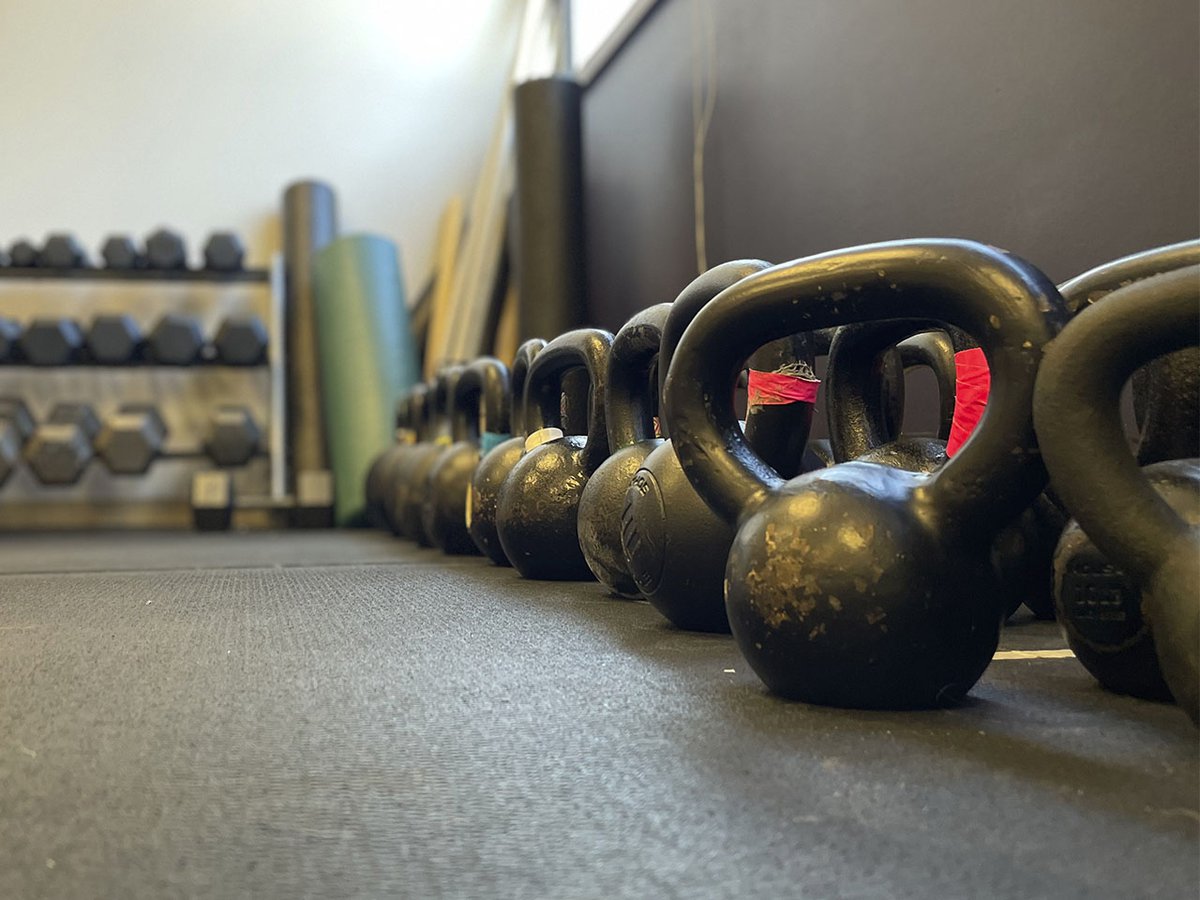Fitness
Annie Forest is building a fitness business around vulnerability and community

Thanks to the excesses of the holidays, New Year’s resolutions and even seasonal depression, many of us set out to improve our fitness each January. But crowded gyms can be intimidating places, thanks to the presence of very fit people who make it look easy, established cliques that work out together, the emphasis on pushing through repeated failure, or all of the above.
Being weak, slow and unmotivated can add up to crippling vulnerability.
Trainer and coach Annie Forest is working to build a community out of vulnerability at her downtown Madison gym.
“Brenè Brown talks a lot about vulnerability and reciprocity being a huge part of decreasing shame,” she says, invoking the self-help author and podcaster. “So being in a community where you can be like, ‘You had a hard time getting here? Me too.’ Or, ‘You’re struggling with that lift? Me too.’ That just gives people such a sense of safety and ease. That risk-taking, like trying a harder lift or coming to more classes or showing up on a day when you don’t want to, actually gets easier.”
Forest would like to flip the traditional fitness theme of sacrifice by emphasizing body positivity and celebrating small, positive steps.
“A lot of times, fitness is loss-based. What can I get rid of? How can I discipline myself more effectively and eliminate freedom in my life?” she says. “What we talk about a lot is you can love your body and you can want to get stronger. You have the right to want more. You can want more energy. You can want more strength. You can want more confidence. You can want all of that and still love yourself where you’re at right now.”
Forest Coaching & Studios first popped up on my radar when I walked past its location at the corner of West Washington Avenue and Bedford Street, where it shares a building with Isthmus True Value Hardware. A little investigation revealed a unique approach to offering group fitness classes: a pay-what-you-can sliding fee scale.
Though she had established a nice business around one-on-one personal training, Forest was unsuccessful in several attempts to build a fitness community via group classes. And she heard from clients that the expense of hiring coaches was preventing them from getting the help they needed.
She changed the focus of her training toward “education and empowerment” in 2015 to address a gap she saw in the industry, and the community classes are a big part of that.
“As I did my own healing, I realized that the fitness industry was leaving this massive gap for people who didn’t want to transform their bodies,” she says. “If you wanted to get buff, that was available. But if you wanted to learn how to move better, feel stronger, it was a great big hole. I kind of stepped into that by accident, as I started to shift my own approach to my wellness. My clientele shifted that way as well.”
The themes of vulnerability and community come up a lot with Forest, who is not bashful about her own challenges. As she stands among kettlebells and resistance bands, holding her seven-week-old baby, she talks about recovering from a “massive” eating disorder and exercise addiction that brought her to the fitness industry 20 years ago, and accompanying chronic pain.
She learned about a company called Z-Health, which focuses on neurological aspects of fitness that makes room in the gym for empathy and compassion. While embracing failure and “the grind” is what many other trainers preach, she wants clients to feel safe enough in their bodies that they can move however they want.
“We can teach and create repeating successes. We make it so accessible that you succeed and succeed and succeed and your nervous system starts going, ‘I want more of that. I can try harder. I can lift more because I keep succeeding,’” she says. “We actually train that piece of it. So when you come up against a max deadlift or a pull-up, when you haven’t done one in a while, your nervous system and your brain goes, ‘I’ve succeeded at it so many times at the lower amount, I know how to recruit that tissue.’”
Stacking successes is her first piece of advice for anyone whose anxiety is holding them back from starting a fitness program this winter.
“Start as easily as humanly possible. I’ve told people if you drive to the gym and sit in the parking lot for five minutes, you got out of the house and you created the habit of going to the gym. You did it,” she says. “Give yourself permission to create the habit first, with really small little bits and pieces.”
And she emphasizes that people should do what they like to do. What’s fun.
“If you don’t like spin, don’t go to spin. If you don’t like yoga, don’t go to yoga just because a celebrity or a magazine said it was the right thing,” she says. “Sometimes you like dancing, sometimes you like lifting, sometimes you like walking. Find the thing that lights you up and brings you joy.”










